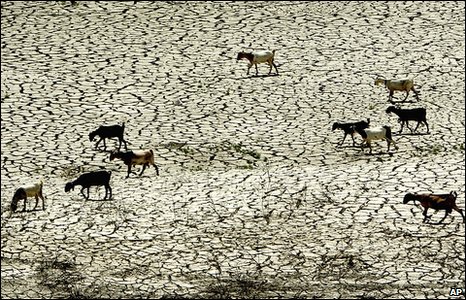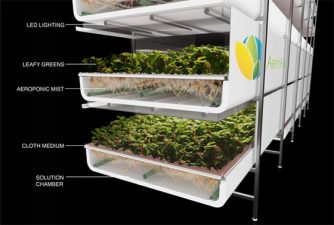 This dry lake bed in southern Cyprus used to be one of the island’s main reservoirs
This dry lake bed in southern Cyprus used to be one of the island’s main reservoirs
Cyprus, an island politically divided into a Turkish northern region and Greek southern region now has an even greater problem other than the reality of the two sections not communicating with each other. Completely surrounded by the Mediterranean Sea, this island is facing an acute water crisis that has been aggravated by several years of drought and an increased need for water by its residents and despite the construction of desalination plants in the southern Greek sector.
The trees are dying
In a recent CNN Earth’s Frontiers documentary, the Environment Commissioner of Cyprus, Charalampos Theopemptou, pointed out some areas on the Greek section where 50 percent of the trees have died because of a lack of water.
“When you lose the trees you lose soil quality. This is why the authorities are worried that the island is slowly turning to desert”.
When rainfall was adequate, required water supplies were available from underground aquifers that now have become so depleted that the water from them is becoming brackish and unfit for drinking. Streams on the island have virtually dried up during the hot summer months, and reservoirs built to store water from winter rains and aquifers, such as the Kouris Reservoir near Limassol, are reaching a critical level.
“Four years of drought, which ended in 2008, have made Cyprus the first EU country to run out of water. This is now turning large portions of the Island into near deserts,” says Prof. Manfred Lange, a geophysicist studying the island’s water crises.
“Cyprus will become more like Abu Dhabi or other similar states simply because there isn’t enough water” Lange told a Reuters reporter in January, 2009.
Desalination solutions
As a result, Cyprus began building desalination plants in the early 1990’s that now supply most of the drinking water in the southern portion of the island. The ongoing water crisis is also beginning to effect tourism, one of the main industries, putting at risk revenue from three million tourists who visit the island each year.
The Turkish or northern portion of the island is not in any better shape and the result has been a virtual “water war” between the two portions for the remaining water from underground aquifers. The Turkish Cypriot authorities are now going to use a different method to acquire the water they need. Last July they signed an agreement with Turkey to build an underwater pipeline, stretching 250m below the sea, from the Alakröpü Dam in southern Turkey to the small village of Geçitköy in northern Cyprus. Professor Lange adds:
“While this solution may work in the short run, it is not a permanent solution as Turkey itself may not have enough water to supply the Turkish portion of the island.”
Elsewhere on the Mediterranean
The water problems that Cyprus now faces, as well as solutions such as desalination, are very similar to those of other Mediterranean countries, including Lebanon, Syria, and Israel.
However, Lebanon and Syria are still trying to rely more on water supplies received from either rainfall or from rivers that flow into their countries from neighboring Turkey.
Israel, like Cyprus, is beginning to rely more on desalination to supply its growing needs. Two giant desalination plants in Ashkelon and Hadera are already in operation, with two more slated to be constructed. A third, smaller plant is located in Palmahim, south of Tel Aviv.
The environmental impacts of desalination plants in both Israel and Cyprus, in regards to increasing the salinity of the Mediterranean, is still not certain. Meanwhile, fossil fuels such as fuel oil and coal are still the main sources of fuel for power plants that supply electricity to operate the desalination plants.
While Israel and other neighboring countries receive some of their fresh water from streams and rivers that flow into them, especially during the winter months, Cyprus has only rainfall to rely on as far as natural fresh water supplies are concerned. This is why scientists like Professor Lange feel that climate change, being caused by global warming, is resulting in the desertification of the island and perhaps the region as well.
“People want water but if you want to avert desertification, we need to let nature have its share,” he said, adding that while climate change could be slowed, it could not be reversed.
Photo: BBC/AP
Read more about water problems in Mediterranean region countries:
Syria suffers acute water shortage
Turkey Environmentally Friendly, but Only With Water
Strategic Foresight Group Has Serious Forecasts for Middle East Water



